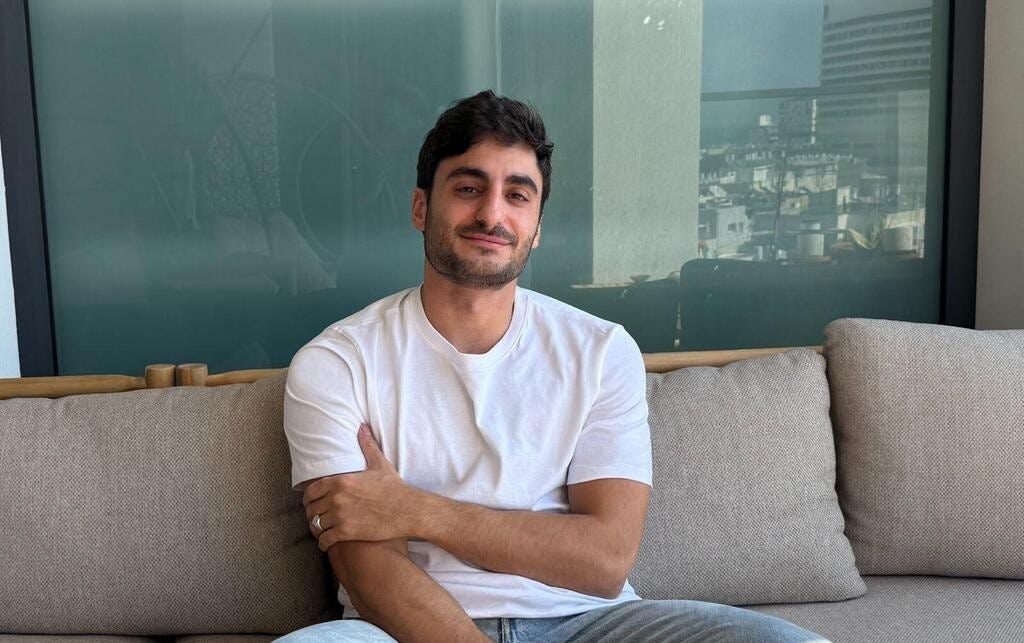From Side Hustle to $80M in 6 Months: The Base44 Blueprint
The first solopreneur billionare "proof of concept"
Good morning AI entrepreneurs & enthusiasts,
Some of the brightest minds in AI are forecasting an era of solo unicorn startups — and a solo-bootstrapped vibe coding platform just offered the world a glimpse of what that future looks like.
Maor Shlomo’s Base44 scaled to 250k users and landed an $80M acquisition in just six months. It’s early proof that AI-fueled solopreneurship is no longer theoretical — it’s happening.
In today’s AI news:
Solo-founded vibe coding platform acquired for $80M
OpenAI addresses bio-risk concerns
Stanford unpacks what workers actually want from AI
Top Tools & Quick News
Solo-founded vibe coding platform exits for $80M
The News: Developer Maor Shlomo just sold Base44 — a bootstrapped AI app-builder — to Wix for $80 million in cash. The platform reached 250k users and $189K in monthly profit within six months.
The details:
Base44 went viral within three weeks, reaching 10k users through organic, word-of-mouth growth.
Shlomo fully owned the company and distributed $25M in bonuses to his eight employees as part of the exit.
Wix plans to integrate Base44 into its platform to support natural language app building.
Shlomo started the project as a side hustle in January, landing partnerships with eToro and Similarweb.
Why it matters: Thought leaders like Sam Altman and Dario Amodei have stated that this decade we will begin seeing the first AI solopreneur-billionaire. Base44 proves the economics of software have shifted. The vibe coding movement is riding a wave of both market demand and accessible infrastructure, and the exits are starting to materialize.
OpenAI gears up for next-gen bio-risk mitigation
The News: OpenAI has announced that its upcoming models — successors to the o3 reasoning model — are expected to cross a "high-risk" threshold in its bio-preparedness framework, due to their potential to assist in bioweapon replication by non-experts. This escalation, called "novice uplift," signals a new level of dual-use concern.
The details:
These future models could enable individuals without formal training to reproduce existing biothreats, though not yet create new ones.
Mitigations include red teaming with biosafety experts, multi-layered security controls, and real-time refusal monitoring systems.
OpenAI will host a biodefense summit in July with government agencies, NGOs, and research institutions.
Anthropic recently implemented similar protocols for Claude 4 in response to nuclear and biological threat concerns.
Why it matters: This shift reflects a major turning point in AI governance. OpenAI is now proactively building cross-sector defenses ahead of model releases — recognizing that powerful general-purpose models must be constrained not just by intention, but by robust infrastructure. The industry’s response here may define how society balances innovation with existential risk.
Stanford: Workers want AI to help, not replace
The News: A Stanford study of 1,500 workers reveals a major gap between what employees want AI to do and what startups are actually building — confirming that most workers prefer AI as a supportive partner rather than a total replacement.
The details:
41% of YC startups are focused on use cases that workers deem low priority.
Respondents said they want AI to handle mundane, repetitive tasks such as scheduling and data entry.
Researchers introduced a new "Human Agency Scale" to measure levels of comfort with automation.
Creative professionals, particularly in arts and media, were the most hesitant, with only 17% expressing support for automating creative tasks.
Why it matters: These findings echo a consistent theme: people want AI to enhance their capabilities, not displace them. As AI agents become more embedded in work, building with human preferences in mind may be the competitive edge that defines successful platforms from those that fail to gain adoption.
Today's Top Tools:
🎥 V1 — Midjourney’s new image-to-video tool
🎨 Higgsfield Canvas — Next-gen image editing & inpainting
🗣️ Google Search Live — AI voice chat interface
Quick News:
Meta is courting Nat Friedman and Daniel Gross to join Alexandr Wang’s AGI division.
OpenAI may reduce reliance on Scale AI following its Meta partnership.
Perplexity launched video gen with Veo 3 and native audio — just tag @AskPerplexity.
ChatGPT added "Record" — capture, transcribe, and summarize meetings with a click.
Nvidia-backed SandboxAQ released SAIR: 5.2M synthetic drug-protein data pairs.
Mass General Brigham unveiled AI-CAC — CT scan analysis tool for early heart disease.
Thanks for reading this far! Stay ahead of the curve with my daily AI newsletter—bringing you the latest in AI news, innovation, and leadership every single day, 365 days a year. See you tomorrow for more!






Crazy
Base44’s story makes the solo-founder billionaire seem less mythical. I’m wondering how Wix plans to keep that momentum—fold it fully into their stack or let it keep shipping independently?